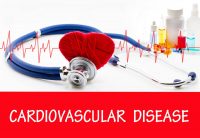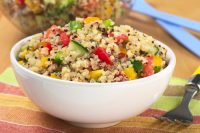
Does Fish Oil Really Lower the Risk of Cardiovascular Disease?
Do you take a fish oil or omega-3 supplement to lower your risk of heart disease – and is it even beneficial. Here’s what a large meta-analysis showed about omega-3’s and heart health.

Do you take a fish oil or omega-3 supplement to lower your risk of heart disease – and is it even beneficial. Here’s what a large meta-analysis showed about omega-3’s and heart health.

We know exercise is a heart-healthy activity, but you might wonder what impact it has on your lipid level, including triglycerides, LDL and HDL-cholesterol. Find out what research shows.

How do you know whether you’re at high risk of heart disease? Cardiologists at UT Southwestern, based on recent research, describe five tests that more accurately predict the risk of cardiovascular disease.

Fitness crazes come and go, but one trend that seems to be enjoying some long-term life in gyms and personal training sessions is high-intensity interval training, also known as HiiT, high-intensity intermittent exercise (HiiE) and sprint interval training (SIT). It’s not for everyone, but it has the potential to kick your fitness level and fat loss up significantly.

Quinoa, a protein rich grain-like seed, has caught the attention of nutritionist and dieters alike. The super food is high in fiber and packed full of a wide variety of vitamins and minerals. Unlike most other superfoods, quinoa is cheap and readily available in the majority of grocery stores. Here are just a few ways that quinoa’s unique nutritional makeup can benefit a healthy diet:

Savory and sweet, sweet potatoes are extraordinarily nutritious and offer a wide array of disease-preventing health benefits.